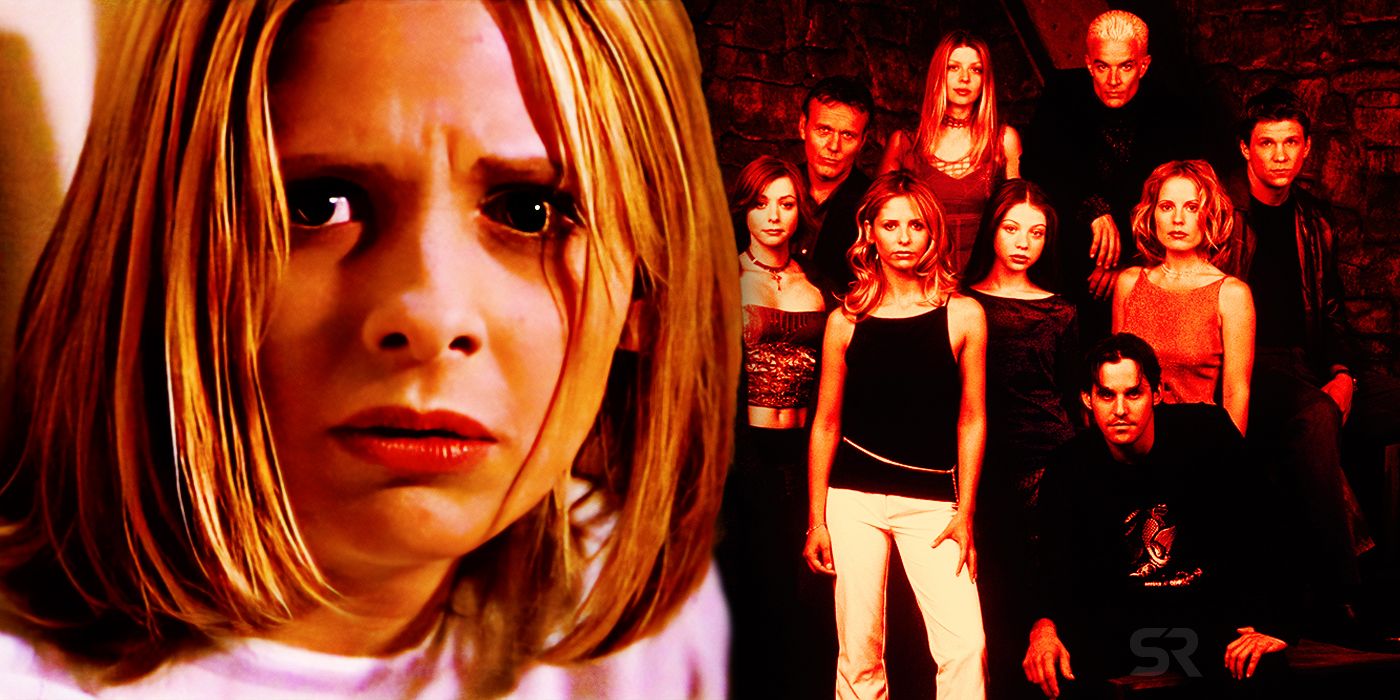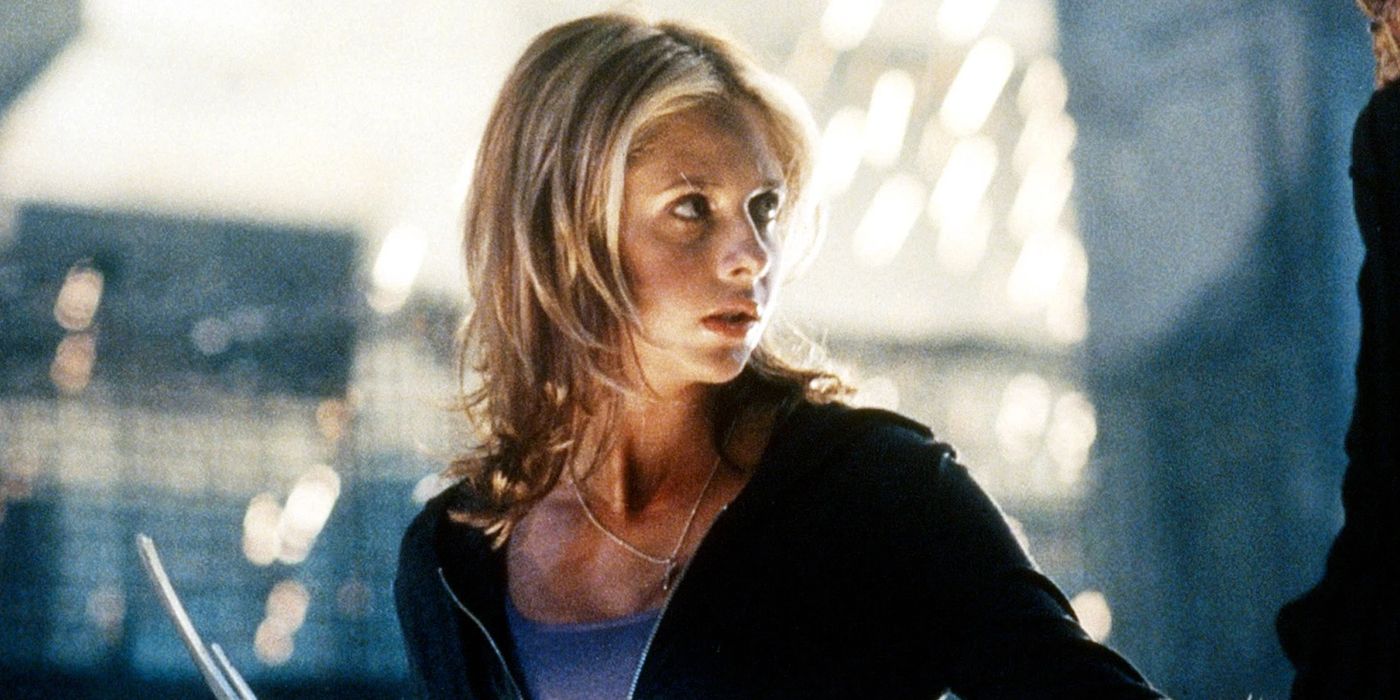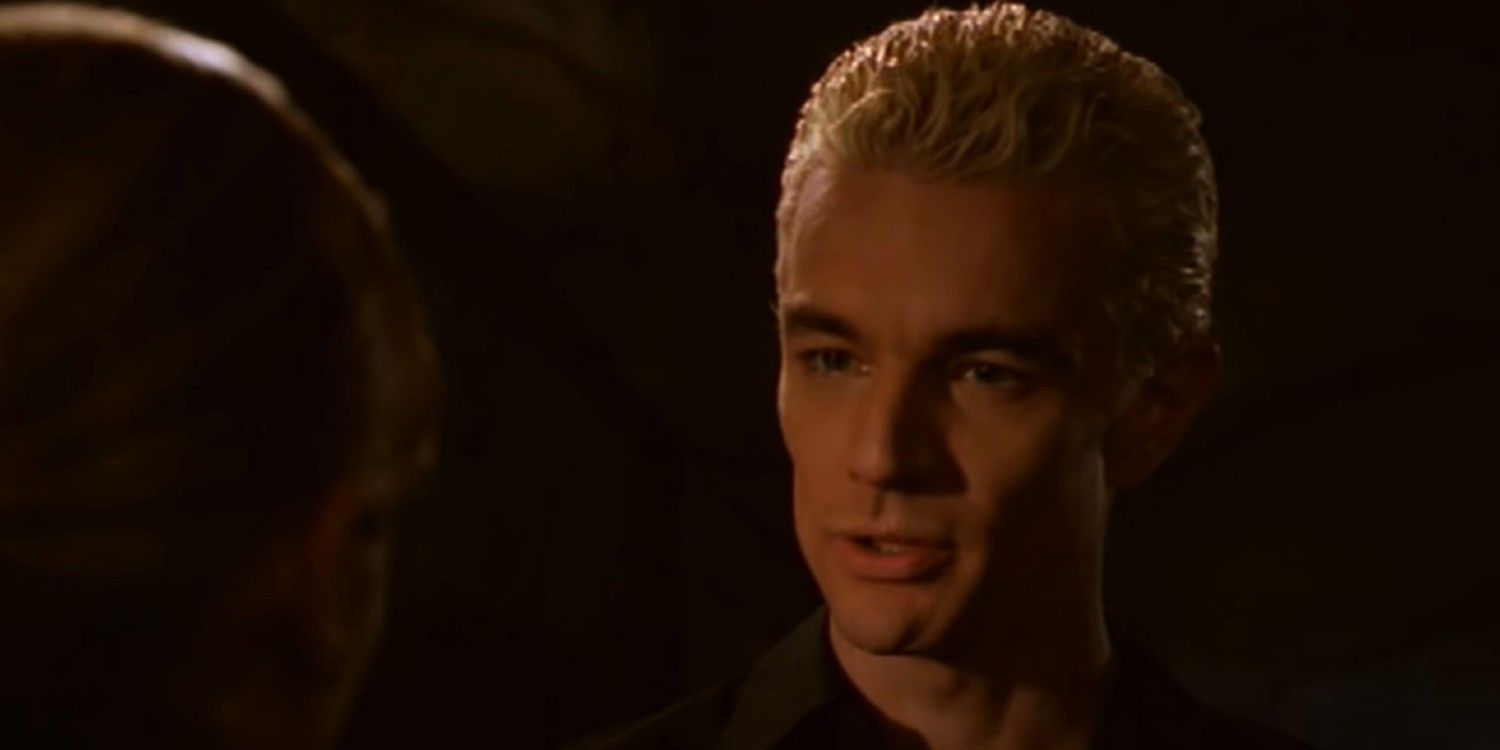This article contains mention of sexual assault.
Buffy the Vampire Slayer season 6 is notoriously unpleasant viewing, and an interview with James Marsters revealed why the season was so dark. Buffy the Vampire Slayer successfully aged with its audience, becoming more mature with each passing year. This worked well in season 5, and set up a perfect tone for the final season 7, but season 6 went too far.
Buffy the Vampire Slayer season 6 is based on human horrors. Huge events fundamentally affect each of the Scooby Gang: Buffy is traumatized following her resurrection, Xander leaves Anya at the altar, and Willow is addicted to dark magic. For the first and only time, even the season's big bad is human. The Trio, who are mostly an annoyance to Buffy, enact schemes rooted firmly in misogyny - a theme that permeates the season, culminating in Tara's death and Spike sexually assaulting Buffy. In an interview with The A. V. Club, James Marsters explained the motivation behind such a dark season of Buffy the Vampire Slayer.
Joss Whedon Wanted To Make Buffy Darker In Season 6
After the apparent conclusion in season 5, Buffy the Vampire Slayer returned with season 6, and a much darker tone than any previous season. James Marsters (who played Spike) discussing the season remarked, "In six, I really got afraid to read the scripts. Because I was going to have to do whatever they thought of to whoever they thought of to do it. There were just no rules anymore. And I was truly terrified." There certainly were no rules in BTVS season 6, and no characters were safe, from either an untimely (and unpopular) death, or a harrowing sexual assault.
Marsters recalls Joss Whedon telling him, “It’s not about giving the audience what they want. It’s about giving the audience what you think they need.” Evidently, season 6 was the season Whedon thought Buffy fans needed, but the backlash suggests it was not the season fans wanted. Whedon's dedication to a darker season 6 of Buffy the Vampire Slayer demanded a degree of realism from his writers. As Marsters recalls, "throughout the entire series, [Joss] was asking his writing team to come up with their worst day." Whedon used his writers' lives to fish for tragedy, basing the whole season on real-world human horrors, rather than the standard supernatural.
Why Buffy Season 6's Human Horrors Didn't Work
The greatest failure of Buffy the Vampire Slayer season 6 was the lack of a proper villain. Other seasons were unified with the overarching presence of the Big Bad, but The Trio was so ineffectual they could not fulfill this role. Instead, they briefly turned each central character into the villain of the season. Buffy, Xander, and Spike are each at some point portrayed in a negative light, building to Willow (played by Alyson Hannigan) becoming the villain in the finale.
Without the dedication of the whole season, Willow's turn as the Big Bad was unconvincing. Furthermore, while The Trio was ineffectual, they were loathsome enough for audiences to rally behind Willow on her murderous rampage, challenging the audience's allegiance. In fact, the Trio function more as comic relief than as the season's villain, which delegates Xander's character into the role of dramatic tragedy, instead of the happy-go-lucky sidekick beloved by audiences.
Additionally, after years of turning Spike into the show's antihero and finding narratively justified reasons for Spike to cease his misdeeds, Whedon chooses this point to remind viewers that Spike is evil, in the most unpleasant moment of Buffy the Vampire Slayer ever. If Whedon wanted to challenge his audience, he seemingly achieved so with Buffy the Vampire Slayer season 6. Whedon may have been too successful, pushing many fans away and prompting a slew of negative critical responses. While there is certainly a lot to love in Buffy the Vampire Slayer season 6, Whedon's dark tone may have overstepped the mark, making the show more harrowing than horrifying.



